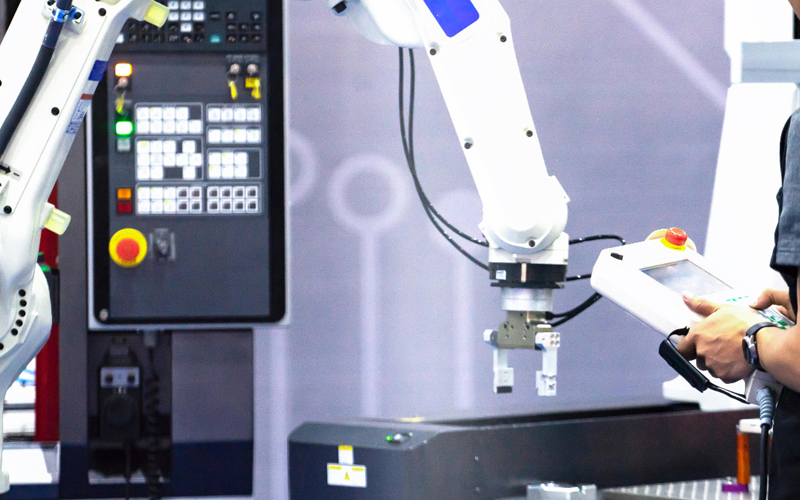Although it may seem that sustainability has become the new “buzzword” in the world of business, it is far from the latest trend. It has become an integral part of the strategic position and success of modern businesses. Environmental, Social, and Governance (ESG) considerations have become the central focus of corporate sustainability initiatives, driving the efforts to achieve sustainability in business.
Increasing focus on sustainability in business
But why has sustainability in business become one of the central focus areas for modern business? The answer lies in the challenges the world is facing – and will continue to face – because of climate change, environmental degradation, and resource scarcity. And if we do not act now, there will be consequences – in the short term and for future generations.
As a result, governments and regulatory bodies around the world are tightening environmental regulations, pushing for transparency and accountability from businesses regarding the impact of their operations on the planet. Investors are also realising the price of unsustainable business practices, prompting a shift in operations and across the board.
As businesses discover more and more value in sustainable business practices, an innovative use of technology has found many takers.
RPA supporting sustainability
Robotic Process Automation (RPA) solutions have emerged as an unexpected ally in driving sustainability in IT and several other industries. From supporting energy and resource-efficient operations and supply chain transparency to employee empowerment and stakeholder engagement, RPA solutions are driving sustainability in business, setting businesses up for long-term benefits and growth through strategic integration of sustainability practices and technology.
The way RPA is helping drive sustainable business practices include:
Resource efficiency and optimisation
Optimal resource allocation and efficiency have become key challenges modern businesses must overcome in the face of increasing resource scarcity. Leveraging RPA solutions can not only support energy-efficient operations but also help conserve water and other resources across the value chain. As a result, businesses can minimise waste and ensure efficient and optimal use of the available resources, which, in turn, reduces costs and minimises their carbon footprint.
Accurate reporting
Transparency and accountability are foundational elements in complying with ESG guidelines and other regulatory requirements. RPA solutions can help you ensure accurate data collection and analysis to ensure credible sustainability disclosure and accurate ESG reporting for regulatory compliance.
Supply chain transparency
Supply chains and logistics are often one of the biggest contributors to a company's carbon footprint, making supply chain transparency and optimisation one of the key focus areas when it comes to corporate sustainability. RPA facilitates real-time monitoring and reporting across every element of a supply chain, fostering transparency and helping companies identify potential ESG gaps, violations, and risks. As a result, companies can focus on implementing sustainable logistics, supply chain, and procurement management strategies encompassing responsible sourcing and ethical labour practices.
Employee empowerment
With robotic process automation solutions automating repetitive tasks, you can focus on enhancing employee well-being and job satisfaction while improving productivity. Offering opportunities for skill development and career growth helps organisations contribute towards social responsibility goals and strengthen their sustainability position.
Stakeholder engagement
Stakeholder engagement and reporting is one of the cornerstones of sustainable business practices. RPA solutions can help you automate and manage communication channels, keeping the stakeholders informed about the different ESG initiatives and progress against sustainability goals. This not only fosters stakeholder trust but also strengthens the company’s position as a sustainable organisation and attracts ESG investments.
Leveraging RPA solutions for sustainable business
RPA solutions present exciting opportunities and new avenues to promote ESG and sustainability efforts in modern businesses. However, successful RPA integration from a sustainability perspective requires thoughtful consideration and a strategic approach.
Here are some aspects businesses must consider to leverage RPA for sustainability in IT or any other industry:
- Assess your business processes against ESG and sustainability objectives to identify high-impact processes.
- Encourage cross-functional collaboration to identify the processes and requirements best fit for automation.
- Ensure the robotic process automation solutions you choose to align and integrate with your existing systems and IT infrastructure for a seamless transition.
- Monitor and assess ESG performance regularly to identify the impact of RPA processes, identify opportunities for improvement, and refine your approach.
Achieving synergy between ESG and RPA is a great way to promote sustainability in business. It helps businesses be more efficient, transparent, and accountable regarding their operations' environmental and social impact.
How can Infosys BPM help?
In addition to streamlining day-to-day operations, robotic process automation solutions are also an integral part of promoting sustainability in business. The people-process-technology framework from Infosys BPM can help augment your workforce with the next-gen digital workforce. As a result, you can achieve unprecedented efficiency and productivity while promoting sustainability in business through responsible conduct and ESG compliance. With services ranging from advisory services and RPA delivery to pilots, PoCs, and bot support, you can reimagine your business process to be more efficient and sustainable.








